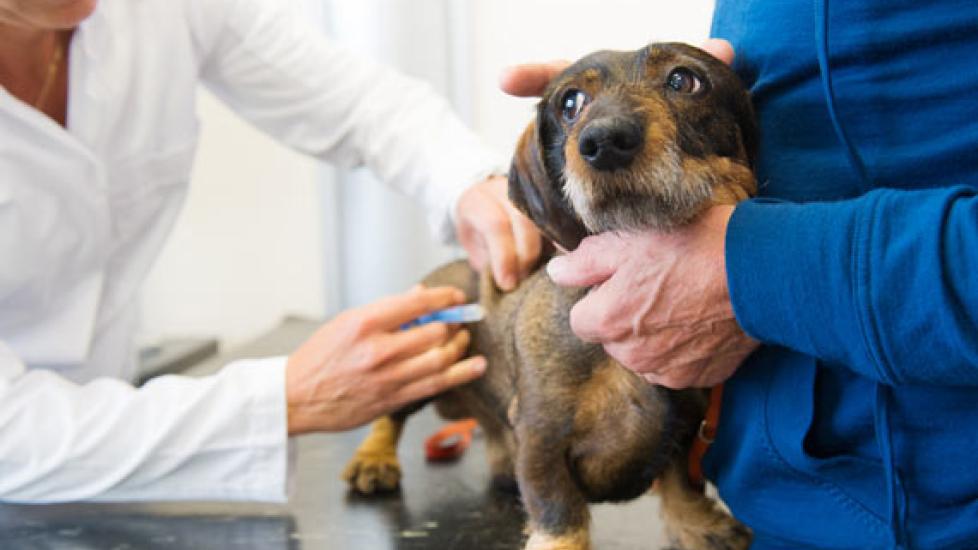Should You Vaccinate Your Dog Against Canine Flu?
Do you feel inundated by all the advertisements for flu shots that crop up every year? My family usually gets our vaccinations from my daughter’s pediatrician. She (my daughter, not the doctor) has asthma. Getting vaccinated is a no brainer since it helps protect her from potentially serious flu-related complications. This year, I have another decision to make, however. Should my dog get a flu shot?
Canine flu and human flu are not the same, so don’t take your dog to the pediatrician’s office or grocery store to be vaccinated. The two diseases, although similar in their effects, are caused by different types of flu viruses. Things can change rapidly in the flu arena, but up to now, we have never seen a case of canine flu diagnosed in people. Also, we have not noticed any seasonality with regards to canine flu infections.
“Regular” canine influenza (H3N8) is a relatively new disease. It was first diagnosed in 2004 in a group of racing greyhounds in Florida. Testing has shown that the virus mutated from a strain of equine influenza and gained the ability to spread from dog to dog. Since then, canine influenza has moved across the country, now being found in the majority of states and the District of Columbia. In 2015, a new form of canine influenza (H3N2) that previously was only prevalent Chinese and South Korean dogs was identified as the cause of an outbreak that originated in the Chicago area.
The symptoms of canine influenza are indistinguishable from “kennel cough” – a generic term for a condition caused by a number of different viruses and bacteria. Typically, dogs will cough, sneeze, have a runny nose, lose their appetite, and be somewhat lethargic, but they get better with symptomatic care only. A small percentage of dogs do go on to develop pneumonia, however, which can lead to death.
Which dogs should be vaccinated against canine influenza? First, find out whether the disease is endemic in your area. Colorado, New York, Florida, and Pennsylvania are notorious H3N8 flu hot spots, but ask your vet whether or not he or she knows of cases in your region. Next, look at your dog’s lifestyle. Canine flu spreads best in enclosed spaces that house a lot of animals. If your dog goes to a boarding facility, doggy day care, groomer's shop, or shows (but not dog parks), he has a higher than average chance of getting sick. In fact, some of these businesses and organizations are starting to require that dogs be vaccinated against canine flu. Dogs can also catch H3N8 flu directly from horses, so equine contact can be considered a risk factor.
Finally, take note of your dog’s individual situation. Does he have an immunosuppressive, cardiac, or respiratory disease that puts him at higher risk for flu complications? Then, vaccination might be in his best interests.
The currently available canine flu vaccine was designed to protect dogs against H3N8 flu viruses. It’s efficacy against the “new” H3N2 flu virus is unknown. Talk to your veterinarian about the best way to protect your dog against the flu.

Dr. Jennifer Coates
Image: Ivonne Wierink / via Shutterstock
Note from the editor: A version of this post was originally published on October 31, 2011. It has been updated to reflect new information on dog flu strains.
Help us make PetMD better
Was this article helpful?
